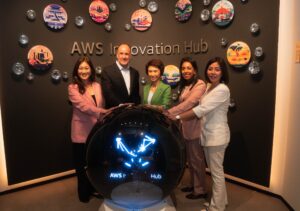Two weeks after IBM decided against buying Sun, Oracle announced just hours ago it has sealed the deal to buy Sun. Oracle will pay US$9.50 per share of Sun, 10 cents per share more than what IBM had offered. I knew something was up when I got a late SMS from Sun’s PR to attend an urgent conference call. Wow, this really came out of the BLUE, pun quite intended.
Oracle to buy Sun for US$7.4 billion
1 Min Read
Sign up for the TG newsletter
Never miss anything again. Get the latest news and analysis in your inbox.
By signing up, you agree to our Terms of Use and acknowledge the data practices in our Privacy Policy. You may unsubscribe at any time.
6 Comments
Leave a ReplyCancel reply
This site uses Akismet to reduce spam. Learn how your comment data is processed.





Agree with CL there. Sun was “the dot in dot.com”, remember that buzz phrase? If Sun and Oracle weren’t so hell-bent on beating Microsoft, and becoming a Microsoft themselves, I think their focus could have been clearer. Just look at where Google came from – just build great stuff and let it take care of “overcoming” Microsoft.
Oracle says Java is its best software purchase with the deal, while tech pundits say a software company swallowing up a hardware company could give it digestion problems. Still, Oracle is instantly transformed into the world’s 4th biggest seller of computer servers with the purchase.
Hmmm. Finally Sun gets acquired.
Surprising, but not really. Sun’s heyday was back in the dot com days in the early 2000s, when they were a big server player and everything was going right for them.
This article at PC World on where did sun go wrong recounts all the reasons why Sun ended up where it is.
Basically Sun is a tech company that had great ideas but when it came to making business out of said ideas it stagnated. Got their rug pulled out from under them, and they got eaten by the changing realities e.g. cheaper, commoditized standard x86 servers eating their Unix workstation market, etc.
Hmmm. I liked Sun as a tech reporter when I covered them quite a bit in 2004 to 2006.
It was a techie company that spoke geek, and as a geeky tech reporter (as opposed to business tech), it was a good fit. It was an underdog after the dot.com crash (and reporters like underdogs). It went the open source route — OpenOffice, MySQL, Solaris — to try to capture market mindshare, and I like open source.
But in tech things change fast. Precious few remember the DECs, Wangs, Altavista, Lycos of the past — It’s all Google, Facebook, Twitter now. Five years down the road, some of these familiar names will change, or even be gone.
A survey conducted by Citigroup amongst major institutional investors provided the following insight on todays markets:
The favored sector is Tech and this sector has held the top position over the last 12 months. Growth stocks are also a hot item of late, the market sees the economy in a more positive view for the second half ofthe year and this should bode well for growth stocks. An additional upside of 6% is expected from current market levels to the end of the year. The majority of this optimism is due to the market rally since March, investors believe the market has bottomed. Regardless of the expected drop (approximately 20%) in earnings this year, a common consensus is the rebound in 2010 will be in the double digits. I’m certain Oracle has this information in mind prior to its acquisition.